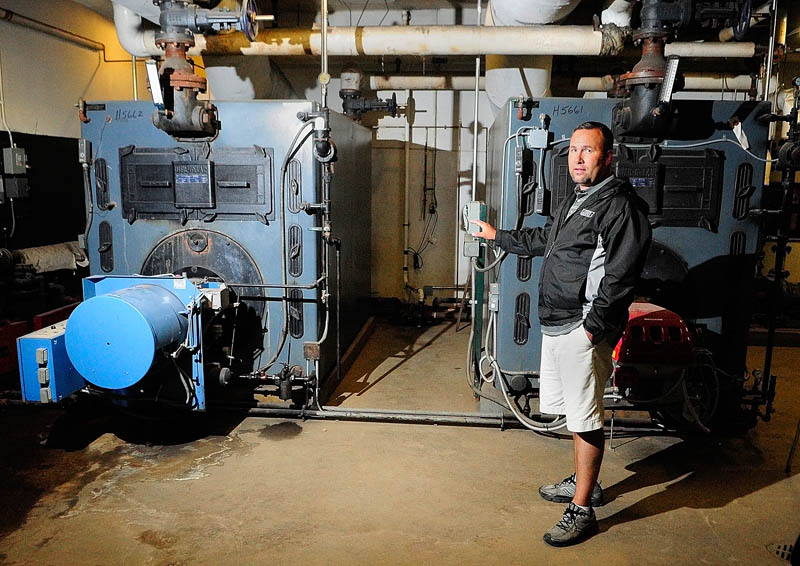GARDINER — Officials in Regional School Unit 11 will ask residents later this month if they can spend additional state money to convert local schools to natural gas.
When officials received word in June that natural gas should be available in Gardiner this fall, it was too late for the new budget to include a project to convert boilers from oil to gas at the three schools near Summit Natural Gas’ pipelines — Gardiner Area High School, Gardiner Regional Middle School and Laura E. Richard Elementary.
An infusion of more state aid than is in the district budget can fund the conversion at no additional cost to taxpayers, but the district needs voter approval to spend that money. They’ll seek it at an Aug. 29 special regional budget meeting and a budget validation referendum on Sept. 3.
“This is a tremendous opportunity for us to save meaningful money, not just in the current budget but in every budget going forward, and we would really be remiss if we didn’t act quickly on this,” said school board Vice Chairman Eric Jermyn, who represents Gardiner.
Cordjia Capital Projects Group estimated that the conversion will cost $80,500 and will save the district $104,400 in the first year. The group used a five-year average of usage of No. 2 fuel at the three buildings to come up with a projected cost of $290,700, while natural gas is expected to cost $186,300.
The $23,900 net savings in the first year means the conversion could probably be funded within the district’s existing fuel budget, but Business Manager Andrea Disch said district officials are asking to use the additional state subsidy as extra assurance that spending won’t go over budget.
RSU 11 will receive state aid amounting to $225,650 more than accounted for in the district budget that voters approved before passage of the state budget. Without authorization to spend the money, it would go into the district’s surplus, which will also be the destination of savings from the natural gas conversion.
Each school has two boilers. District officials are proposing to replace the burner on one boiler at each school for one that burns natural gas. The second boiler, which acts as a backup and is typically used only on the coldest days, would continue to burn heating oil.
Director of Operations Jon Stonier said replacing the burners should take only a day or two. The buildings would use about 90 percent natural gas and 10 percent oil.
The boiler rooms at the middle school and Laura E. Richards are close to the road, but the pipeline at the high school will have to cross the back parking lot. Stonier said he and Summit Natural Gas will try to plan that part of the process to minimize disruptions for students, staff and visitors.
The boilers at the schools are aging, and the district has put off replacing them because of the cost — up to $450,000 at the high school — but Stonier said they hope to put the savings from natural gas aside to replace them with more efficient boilers that will save even more money.
New boilers could potentially operate with multiple types of fuel. Jermyn said for him, that allays any concerns about potential increases in the price of natural gas.
Mike Duguay, director of business development for Summit Natural Gas, said the three RSU 11 schools are on routes that the company had already planned to serve.
A significant amount of the distribution infrastructure is already in place, Duguay said, and they hope to have gas flowing by early November.
Stonier said they heat the buildings a bit in October, but the real heating season starts in mid-November.
Susan McMillan — 621-5645
smcmillan@mainetoday.com
Send questions/comments to the editors.



Comments are no longer available on this story